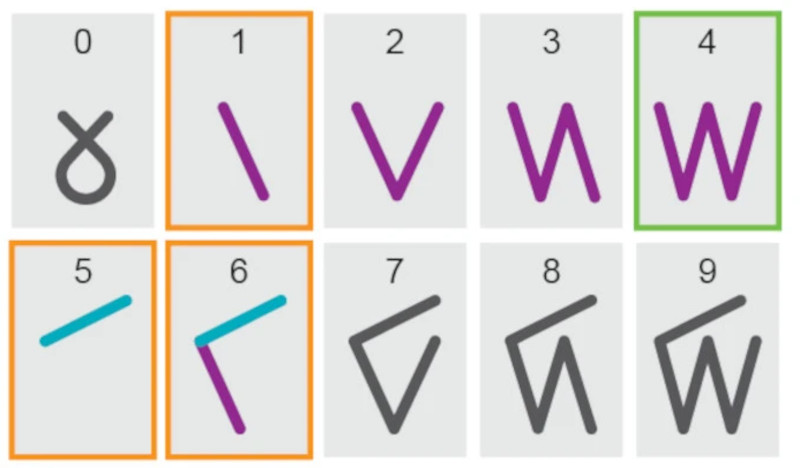Russia's spring offensive in Ukraine could include cyberattacks, Microsoft says
Moscow also appears to be stepping up its influence operations to weaken European and American support for sending more aid to the Ukrainian government.
WASHINGTON — A hacking group with ties to the Russian government appears to be plotting new cyberattacks against Ukrainian government infrastructure and offices, Microsoft said in a report Wednesday, suggesting that Russia's long-awaited spring offensive could include measures in cyberspace, as well as on the ground.
The report also indicates that Russia appears to be stepping up its operations of influence outside Ukraine, in an effort to weaken European and American support for continued military aid, intelligence sharing, and other forms of assistance to the Ukrainian government. The effort would come as a faction of the Republican Party - and some of the Democratic Party - argue that supporting Ukraine is not a core US interest.
For now Russia's main influence campaign is focused in Europe, but it will shift to the United States" as the year draws closer to a presidential election debate in the United States. fall," said Clint Watts, head of Microsoft's Digital Threat Analysis Center.
Since the start of the war a year ago, Russian efforts to use its considerable cyber capabilities against Ukraine, and its inability to cripple the government as US officials expected, have been the subject of intense study, and a bit of mystery.
Evidence accumulated in recent months shows that Russia has often tried to coordinate cyberattacks with physical attacks on the Ukrainian power grid and other targets. But the Ukrainians were often one step ahead of Moscow and had backup systems or rigged new ones, including moving much of the country's digital operations to the cloud.
Microsoft The report carries significant weight because the company's warnings about impending cyberattacks as war approached were largely accurate. But it also suggests that Russian digital warriors, many linked to the country's intelligence services, are trying again in the second year of the war.
These In recent months, senior US officials began discussing their efforts in late 2021 to help bolster Ukraine's cyber defenses and a rush to move the operation of government agencies to the cloud in the weeks after the start of the crisis. 'invasion. This minimized the damage Russia was able to inflict and allowed Ukrainian President Volodymyr Zelensky to broadcast messages on the internet every day to rally citizens to fight.
Microsoft said he believed a group with Russian ties he had been tracking was carrying out actions that may "be in preparation for a new offensive", including reconnaissance, access and software operations data-erasing malware, just like hackers did in the early days of last year's invasion.
"There is an increase from trying to access government targets, trying to access critical infrastructure targets to then trying to use destructive targets or modified ransomware attacks,” Watts said.
Ukrainian officials say they are witnessing more than 10 cyberattacks ques a day, Russian hackers focusing on the energy sector, logistics facilities, target military and government databases.
"We monitor real-time risks and threats 24/7," Ilia Vitiuk, head of the cybersecurity department of Ukraine's Security Service, known as S.B.U., said in a statement. "We know by name most of the Russian special services hackers working against us."
But even as Russian cyber ops look set to intensify , Ukraine's defences, at least for now, remain strong, U.S. and Ukrainian officials say. Ukraine on how to fight back against groups seeking to cripple its systems. US officials, however, provided few details, just as they declined to discuss what information they are giving Ukraine to help target its missile and artillery systems.
Mr. Watts said Microsoft research showed that Ukrainians had also become more resistant to Russian propaganda, and Ukrainian interest in Russian news sites had dropped significantly as the war continued.

Moscow also appears to be stepping up its influence operations to weaken European and American support for sending more aid to the Ukrainian government.
WASHINGTON — A hacking group with ties to the Russian government appears to be plotting new cyberattacks against Ukrainian government infrastructure and offices, Microsoft said in a report Wednesday, suggesting that Russia's long-awaited spring offensive could include measures in cyberspace, as well as on the ground.
The report also indicates that Russia appears to be stepping up its operations of influence outside Ukraine, in an effort to weaken European and American support for continued military aid, intelligence sharing, and other forms of assistance to the Ukrainian government. The effort would come as a faction of the Republican Party - and some of the Democratic Party - argue that supporting Ukraine is not a core US interest.
For now Russia's main influence campaign is focused in Europe, but it will shift to the United States" as the year draws closer to a presidential election debate in the United States. fall," said Clint Watts, head of Microsoft's Digital Threat Analysis Center.
Since the start of the war a year ago, Russian efforts to use its considerable cyber capabilities against Ukraine, and its inability to cripple the government as US officials expected, have been the subject of intense study, and a bit of mystery.
Evidence accumulated in recent months shows that Russia has often tried to coordinate cyberattacks with physical attacks on the Ukrainian power grid and other targets. But the Ukrainians were often one step ahead of Moscow and had backup systems or rigged new ones, including moving much of the country's digital operations to the cloud.
Microsoft The report carries significant weight because the company's warnings about impending cyberattacks as war approached were largely accurate. But it also suggests that Russian digital warriors, many linked to the country's intelligence services, are trying again in the second year of the war.
These In recent months, senior US officials began discussing their efforts in late 2021 to help bolster Ukraine's cyber defenses and a rush to move the operation of government agencies to the cloud in the weeks after the start of the crisis. 'invasion. This minimized the damage Russia was able to inflict and allowed Ukrainian President Volodymyr Zelensky to broadcast messages on the internet every day to rally citizens to fight.
Microsoft said he believed a group with Russian ties he had been tracking was carrying out actions that may "be in preparation for a new offensive", including reconnaissance, access and software operations data-erasing malware, just like hackers did in the early days of last year's invasion.
"There is an increase from trying to access government targets, trying to access critical infrastructure targets to then trying to use destructive targets or modified ransomware attacks,” Watts said.
Ukrainian officials say they are witnessing more than 10 cyberattacks ques a day, Russian hackers focusing on the energy sector, logistics facilities, target military and government databases.
"We monitor real-time risks and threats 24/7," Ilia Vitiuk, head of the cybersecurity department of Ukraine's Security Service, known as S.B.U., said in a statement. "We know by name most of the Russian special services hackers working against us."
But even as Russian cyber ops look set to intensify , Ukraine's defences, at least for now, remain strong, U.S. and Ukrainian officials say. Ukraine on how to fight back against groups seeking to cripple its systems. US officials, however, provided few details, just as they declined to discuss what information they are giving Ukraine to help target its missile and artillery systems.
Mr. Watts said Microsoft research showed that Ukrainians had also become more resistant to Russian propaganda, and Ukrainian interest in Russian news sites had dropped significantly as the war continued.
What's Your Reaction?






















